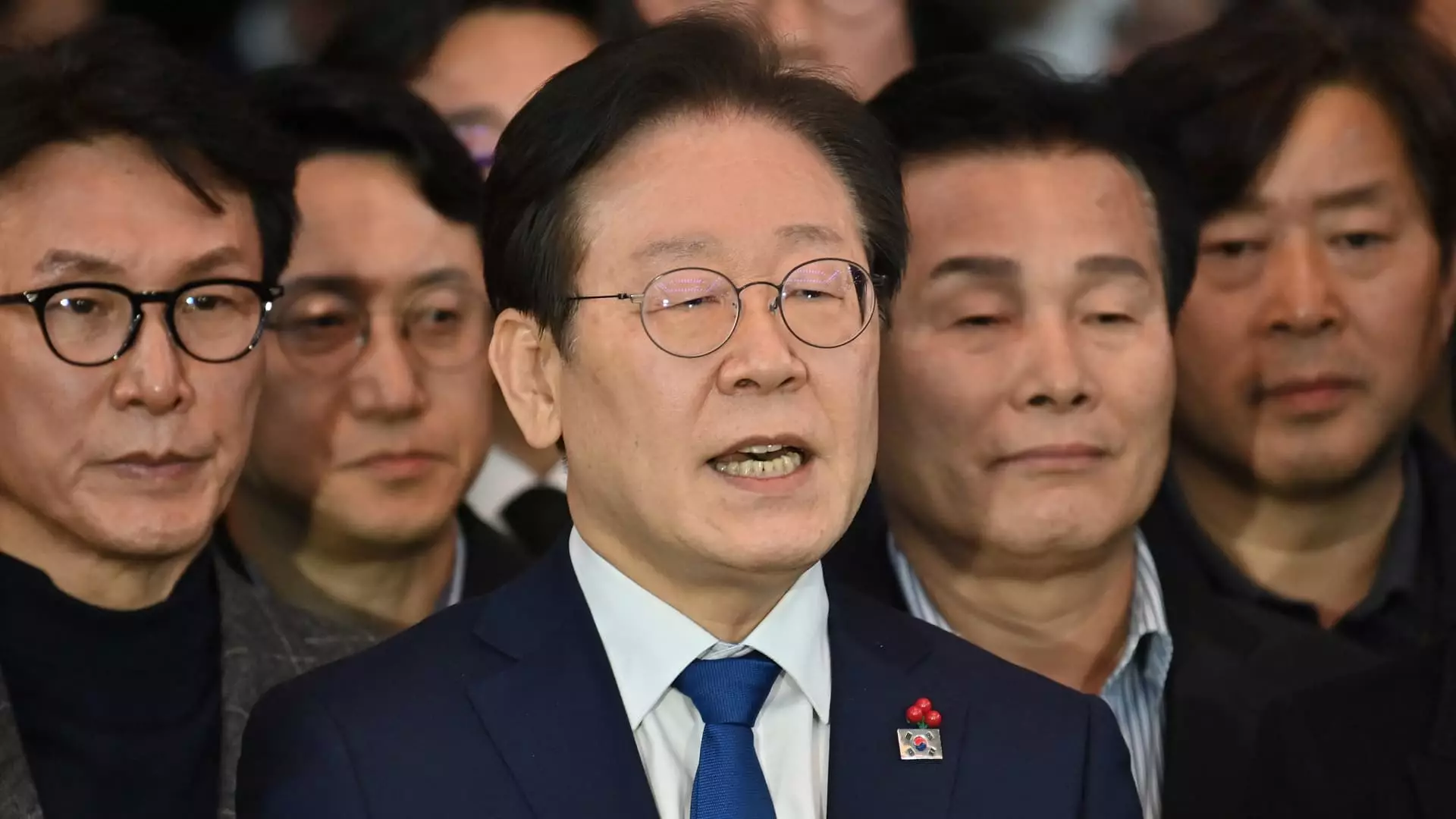In a political landscape overshadowed by recent turmoil, South Korean presidential frontrunner Lee Jae-myung has emerged as a torchbearer for a new kind of diplomacy. His remarks on the necessity of reconsidering the deadline for tariff negotiations with the United States have struck a chord with many voters who feel the weight of economic challenges and international alliances. Lee’s perspective starkly contrasts with the aggressiveness of former President Yoon Suk Yeol, who found himself embroiled in controversy and ultimately impeachment for radically declaring martial law. The ensuing snap election is not merely a competition between candidates; it is a referendum on how South Korea perceives its role on the global stage.
One cannot help but question the rigid timelines imposed on international negotiations. Lee challenges the notion that diplomatic progress must adhere to arbitrary deadlines favoring one party over the other. “Isn’t diplomacy something that benefits both sides?” he provocatively asks, illuminating a fundamental flaw in traditional diplomatic approaches that often lead to one nation feeling plundered rather than respected. This criticism resonates particularly strongly in a world of rising populism and nationalism, where cooperation seems increasingly elusive.
The Economic Imperative
The South Korean economy stands at a critical juncture, facing a slowdown that demands immediate attention. The urgency Lee expresses in initiating a robust economic response is not merely political rhetoric; it’s a clarion call for real action. “I will swiftly prepare immediately actionable economic measures,” he asserts, signaling a preparedness rare among political contenders. Compiling an extra budget is not just about numbers; it’s a commitment to revitalize an economy that serves as the bedrock for social stability and national pride.
What Lee recognizes—and what other candidates risk overlooking—is that economic health is intertwined with international relations. With elections nearing, postponing vital decisions can lead to detrimental consequences. Until now, South Korea’s approach has too often been reactive, shaped by the whims of foreign trade partners. Lee’s emphasis on mutual respect in these discussions positions him as a candidate not just for South Korea but for a more collaborative global economy.
Recalibrating Military Strategy
Lee’s strategic vision for peace on the Korean Peninsula brings a refreshing pragmatism to a historically fraught situation. Unlike his predecessor, who escalated tensions with North Korea and alienated key allies, Lee advocates for a reassessment of South Korea’s military policies not as a sign of weakness but as a pathway toward stability. By strengthening defense capabilities while simultaneously seeking dialogue, he redefines what it means to be a strong player on the international chessboard.
Critics may label this approach as naïve, yet Lee’s understanding of inter-Korean relations is informed by the realities of the modern geopolitical landscape. It’s time for South Korea to step away from a path of hostility and to engage in a dialogue built upon shared interests and respect. The ability to maintain powerful military deterrence while also promoting peace is an ambitious but necessary balance that can secure South Korea’s future.
A Test of Public Sentiment
Despite leading the polls, Lee faces formidable opposition from conservative rival Kim Moon-soo, whose escalating support has put pressure on him as the election date approaches. The race has become a battleground for differing ideologies, and Lee’s stance on matters like trade and inter-Korean relations could tip the balance. As he aligns himself with principles of cooperation rather than confrontation, he must persuade a cautious electorate wary of adopting what they may perceive as a more vulnerable position.
His reminder that South Koreans would reject “those who supported or staged the insurrection” underscores the critical role public sentiment will play in the coming days. This isn’t just political rhetoric for Lee; it’s a reflection of deeper societal values in a nation grappling with recent upheaval and its implications for future governance.
As South Korea stands on the cusp of pivotal decisions, Lee Jae-myung’s vision for critical diplomacy offers a hopeful outlook. By balancing respect and pragmatism, he not only aspires to restore trust among allies but also to uplift an economy in distress, positioning his campaign as one that champions the principles of mutual benefit and coexistence.


Leave a Reply